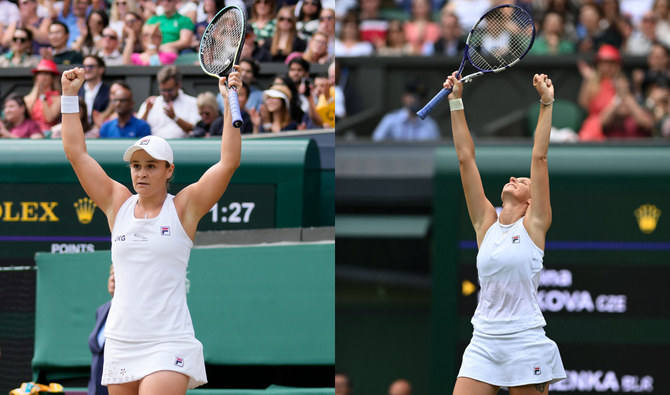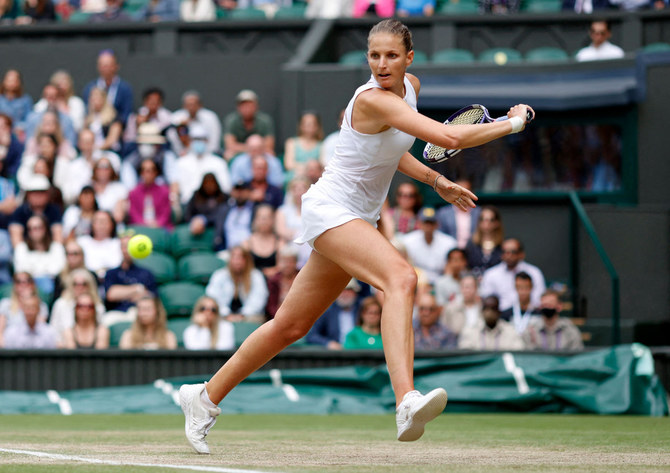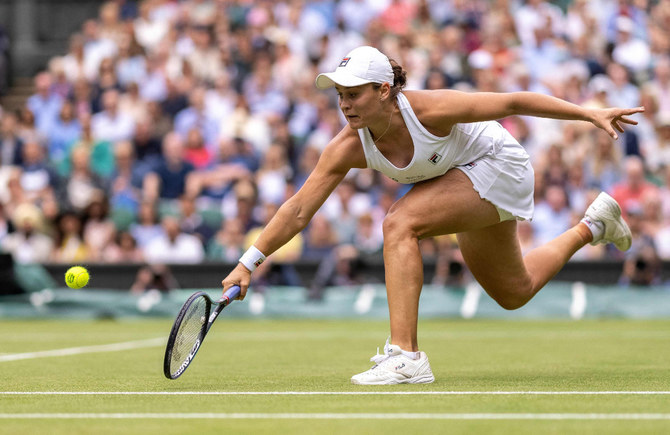WIMBLEDON, England: It was difficult for Ash Barty to imagine that a trip to her first Wimbledon final was just around the corner when she stopped playing at last month’s French Open with a hip injury.
Or even when she was two points from being pushed to a third set by Angelique Kerber in their semifinal at the All England Club.
Barty does not let obstacles trouble her for too long. She figures out a way and pushes forward. That’s why she’s ranked No. 1 and it’s why she stands one win from a second Grand Slam title after beating 2018 champion Kerber 6-3, 7-6 (3) on Thursday.
“I’ve had ups and downs and everything in between and I wouldn’t change one day or one moment or one, kind of, road that we’ve taken in my path and my journey,” said Barty, who was the 2011 junior champion at the All England Club and stepped away from tennis for almost two years starting in 2014 because of burnout. “It’s been unique. It’s been incredible. It’s been tough. There have been so many things that led to this point.”
Her opponent in Saturday’s final will be No. 8 seed Karolina Pliskova, who emerged from a power-hitting and serving display to come back to defeat No. 2 Aryna Sabalenka 5-7, 6-4, 6-4.
“Super proud about the way how I handled the situation out there,” Pliskova said.
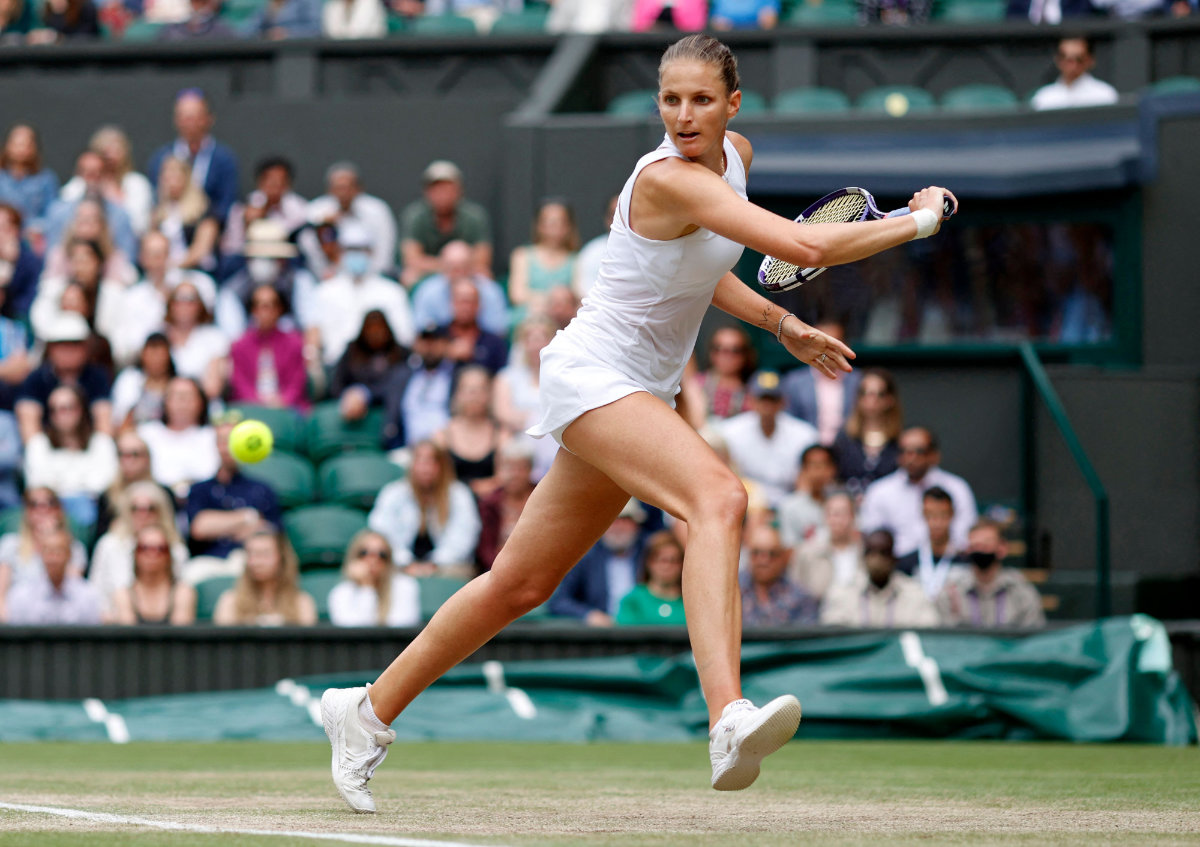
Czech Republic's Karolina Pliskova returns against Belarus's Aryna Sabalenka during their 2021 Wimbledon Championships semi-final match in London on July 8, 2021. (AFP)
Pliskova produced 14 aces, Sabalenka 18, and the combined total was the most in a women’s match at Wimbledon since they started keeping such stats in 1977. The difference in this match, ultimately: Pliskova was broken just once, Sabalenka twice.
After going 0 for 8 on break points in the first set, the first set she dropped in six matches, Pliskova “got a bit frustrated,” she acknowledged afterward.
But she went 1 for 1 in that category in each of the last two sets.
“She just returned like crazy — like, really good — and I couldn’t do anything,” said Sabalenka, the only top-20 seed in the draw without a major quarterfinal appearance until now.
Neither Pliskova — whose coach, Sascha Bajin, used to work with Naomi Osaka and was Serena Williams’ hitting partner — nor Barty had ever been past the fourth round at the grass-court Grand Slam tournament.
“Coming into this tournament, the dream was to make the second week. ... Sascha was super confident in me,” said Pliskova, a 29-year-old from the Czech Republic who was the runner-up at the 2016 US Open to Kerber and used to be ranked No. 1. “He said, ‘I told you, you were going to make the final.’”
The 25-year-old Barty won the 2019 French Open and has been atop the WTA rankings for 1 1/2 years.
She is the first woman from Australia to reach the title match at Wimbledon since Evonne Goolagong won the trophy 1980; Barty has been wearing an outfit intended as a tribute to Goolagong this fortnight.
“Now to kind of give myself a chance to create some history, almost in a way that’s a tribute to her, is really exciting,” Barty said.
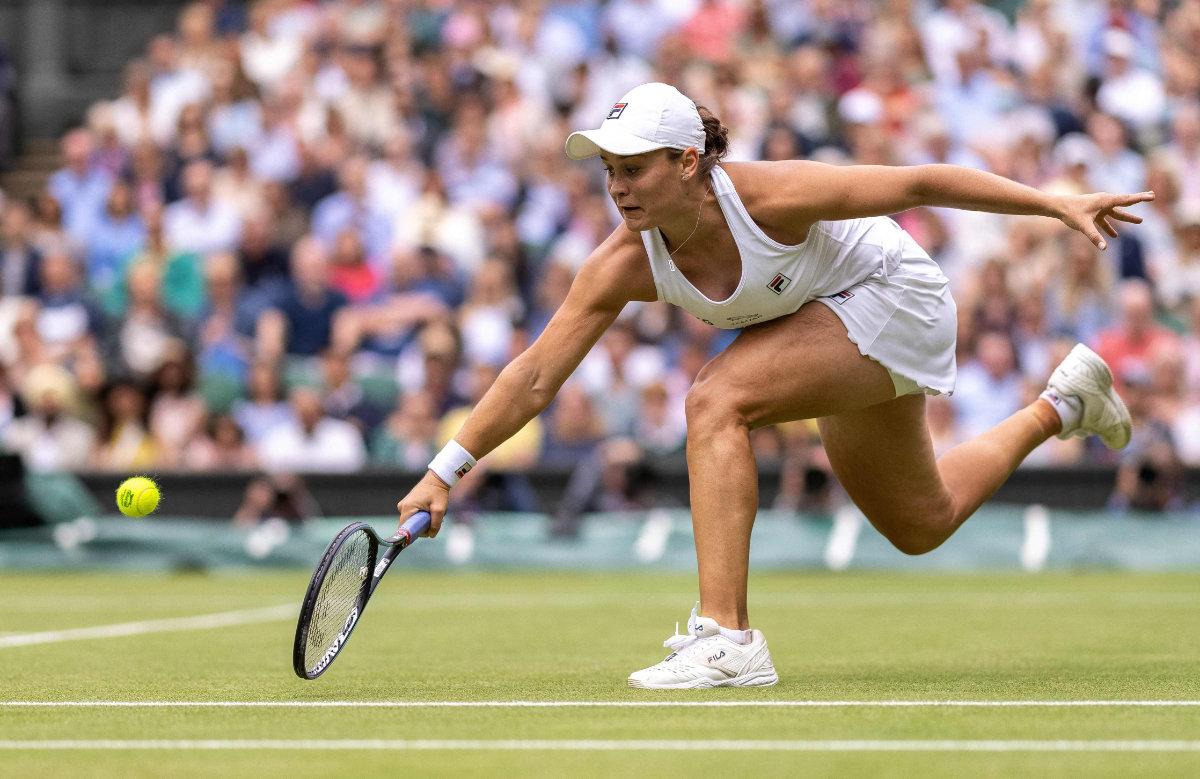
Australia's Ashleigh Barty returns against Germany's Angelique Kerber during their 2021 Wimbledon Championships semi-final match in London on July 8, 2021. (AFP / POOL)
She arrived in England not having competed since June 3, when she withdrew during her second-round match in Paris, her left hip in too much pain to continue.
“To be honest, it was going to be touch and go. Everything had to be spot on to give myself a chance to play pain-free and to play knowing that I could trust my body,” Barty said. “If you told me a month ago we’d be sitting in this position, I really wouldn’t have thought that we would even get close.”
On Thursday, she faced a big test in the second set, which Kerber was two points from owning when Barty served at deuce while trailing 5-2. The full-capacity crowd was backing the comeback effort for the 33-year-old German, too, with shouts of “Come on, Angie!” and “Go on, Kerber!”
But Barty steeled herself to hold there, then broke to get within 5-4 with a cross-court forehand passing winner.
That was part of a 38-16 advantage in total winners for Barty, responsible more than anything else for her triumph. And this was remarkable: She compiled that many point-ending shots while making only 16 unforced errors.
“A great level, the best level I’ve played in quite some time,” Barty said. “Angie is an incredible competitor. She brought out the best in me today.”
It was a rather entertaining and, from point to point, rather even contest, two talented baseliners willing to try a volley, drop shot or lob when required. They were each other’s equal for long exchanges — in all, 22 points lasted at least nine strokes, with Kerber winning a dozen.
Their approaches are different, though. Kerber is a left-hander who hits flat groundstrokes and is just fine with handling foes’ low shots, often dropping a knee onto the turf to get leverage.
Barty is a righty who relies on heavy topspin for a forehand packed with power, and her slice backhand can produce tricky bounces on the grass.
She ended up with an 8-0 edge in aces and 18-9 in forehand winners.
“I was trying to playing my game,” Kerber said. “But she had always a good answer.”


